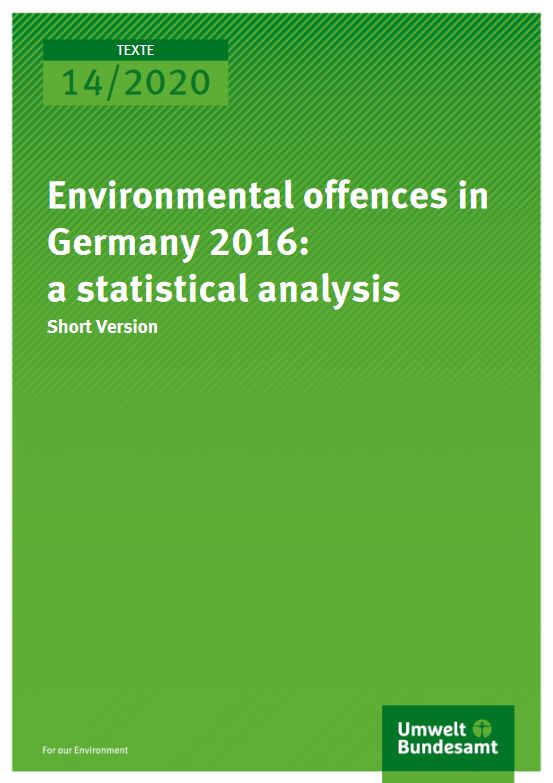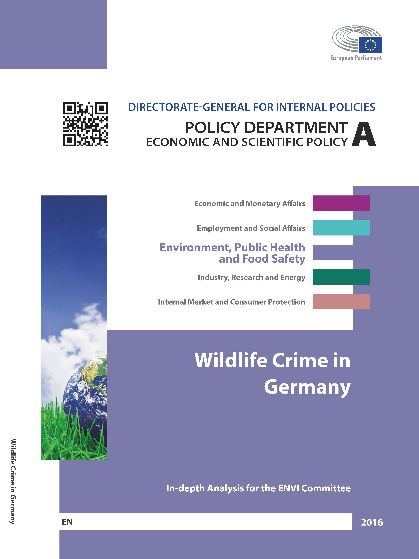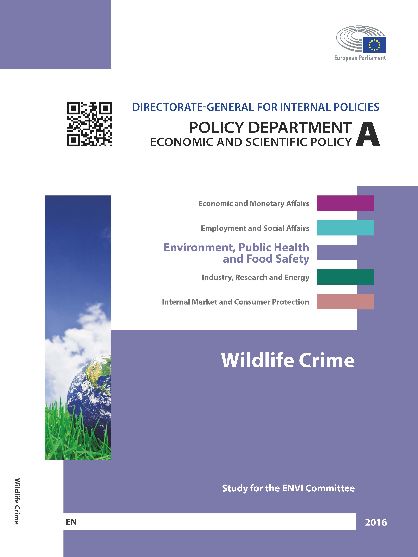The illegal pollution of soil, water, and air, the illegal trade in protected species or the illegal shipment of waste abroad – these are different forms of environmental crime. Environmental crime has many negative consequences. Its environmental impacts range from the destruction of forests to the pollution of water, soil, and air and even to species extinction. Moreover, many types of environmental crime also affect human health, and organised forms of environmental crime undermine state structures and sustainable development.
That is why criminal law provides for sanctions for certain actions that pollute or destroy the environment massively. With its environmental directive, the EU has obliged Member States to adopt criminal law provisions penalising certain types of environmental harmful behaviour.
More recently, environmental crime has been increasingly discussed at the international and EU level. A lack of robust data is mentioned over and over again as problematic. The lack of data is partly due to the nature of crime, but partly also due to the lack of systems for compiling respective statistics. Better data is, however, important for a number of reasons: More accurate knowledge about the consequences of environmental crime could help, for example, to allocate scarce enforcement resources more effectively and a better understanding of the effectiveness of various measures to combat in environmental crime could in turn help to develop a more effective system of sanctions.
Contents of the project
Against this background, the aim of the project "Environmental criminal law: status quo and further evelopment", funded by the German Federal Environment Agency, is to fill knowledge gaps about environmental crime and how to combat it with a focus on Germany. In addition, practical recommendations for the further development of environmental law are developed. To this end, first, a stocktaking exercise of criminal law statistics, insights regarding administrative offenses, the application practice and cooperation of authorities, as well as compliance instruments in criminal and administrative law is carried out. In a second step, the project tries to close existing data gaps with the help of interviews, an expert workshop, and through requesting data from authorities.
The core findings of the project are summarised in a new edition of the German-language publication "Umweltdelikte" and in a final report.
The team of Ecologic Institute is supported by Prof. Dr. Michael Faure, University of Rotterdam and Chairman of the Flemish High Enforcement Council for the Environment, and lawyer Dr. Claudia Klüpfel. With this project, the Ecologic Institute is building on its previous work in the research project European Action to Fight Environmental Crime.







